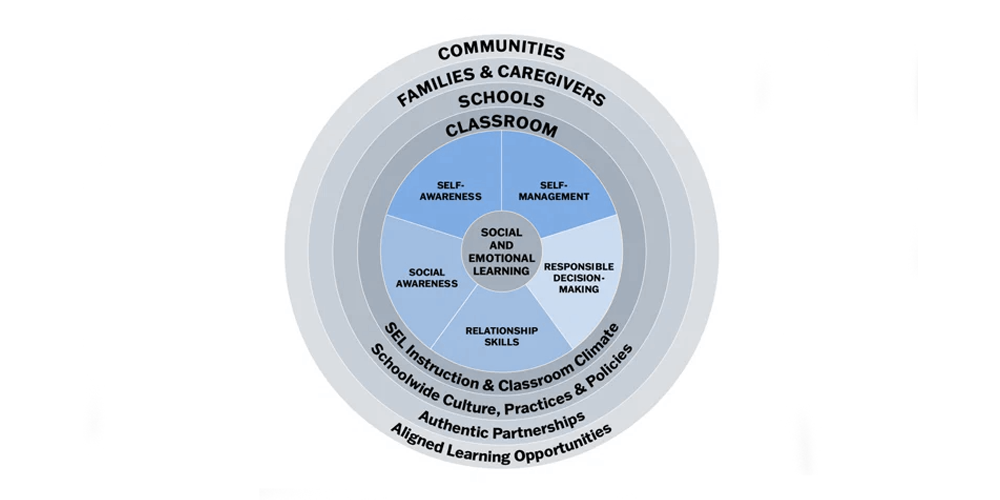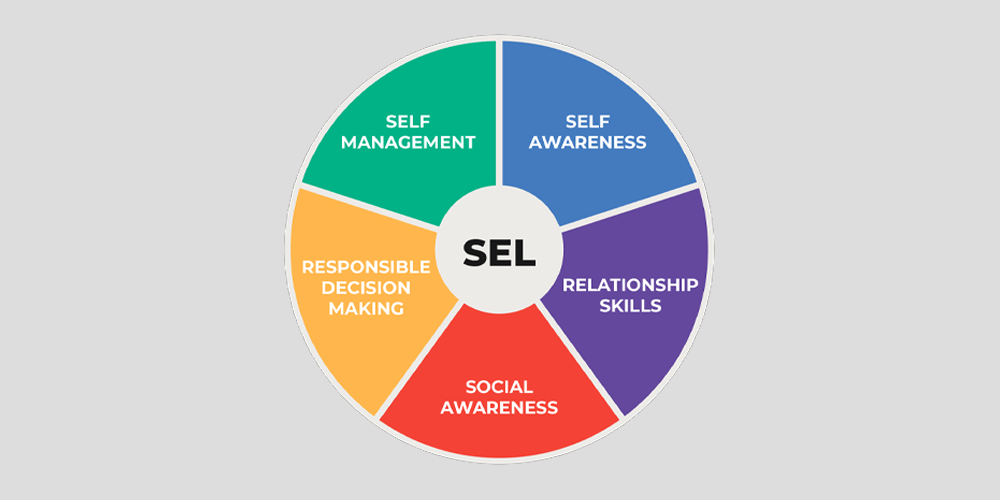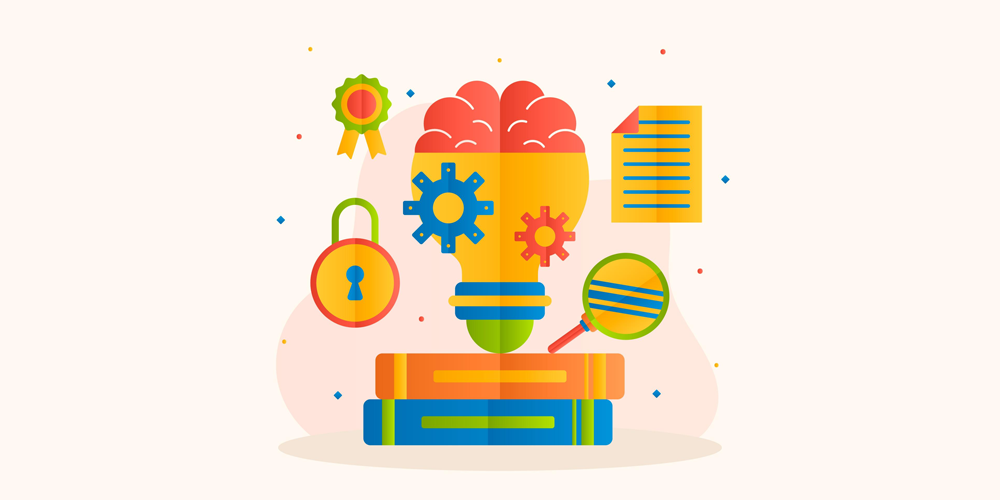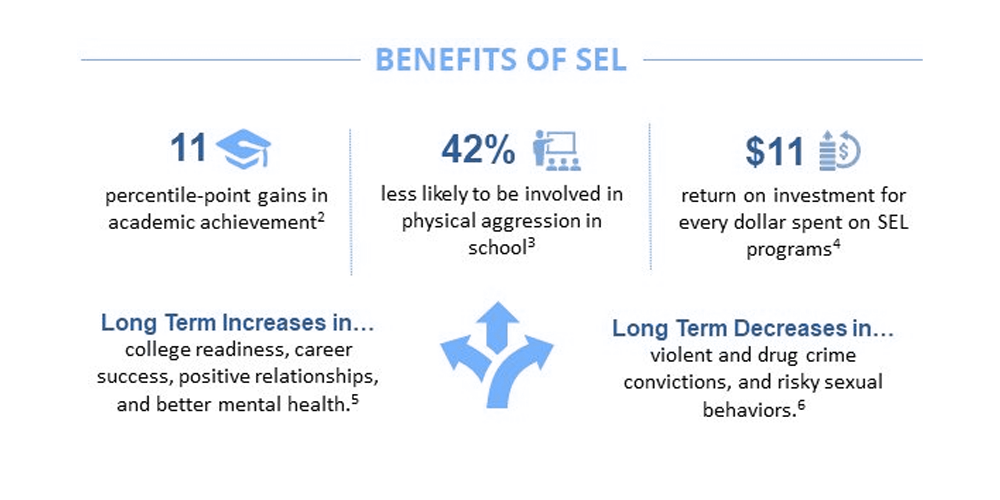
Social and Emotional Learning(SEL) is an innovative teaching strategy that applies efforts to teach the whole personalities of kids. In their students, teachers want not only to see them as successful but as wise, reasonable, and emotionally stable individuals.
SEL enables students to gain such fundamental life skills to enable them to prepare for school and in life.
So, What is SEL?
Table of Contents
Understanding Social Emotional Learning (SEL)

SEL is actually the skills in which children are able to recognise and manage their own feelings, adopt proper strategies of goals setting and accomplish them, respect others’ feelings, interact with other people constructively, and make right decisions.
SEL is an important aspect of human development, which impacts on the scholar’s academic, emotional, social, and psychological development.
We seek it to empower students for handling various aspects in life, relating well with fellow students and performing somewhat in any learning institutions. These contribute to the development of overall mental health.
SEL’s value can be traced in as much as they create a positive, supportive, and welcoming school climate. It guides the learner on how to manage feelings, grasp others’ moods and be good citizens that will translate into exemplary academic performance and self fulfilment.
The Science Behind Social Emotional Learning

Science of neuroscience and psychology has indicated that SEL plays the most significant effect on human brain development which are associated with control of feelings, making decisions and handling interpersonal relationships.
Scholarship indicates that, as students practise SEL skills, their brain connections that support empathy, self-interest, and impulse control are developed.
This science helps to back up the notion that SEL is a lot more than just a fluff factor, but the foundational building block of the brain that shapes students’ trajectory for learning and social endeavours in a lifelong prospective, and that’s why SEL is important.
Core Competencies in SEL

SEL involves the development of five core competencies, in students that are important for holistic growth and success:
- Self-Awareness: Self-awareness and awareness of others emotions, thoughts, and values, which may contribute to their actions.
Emotional self-regulation, cognitive self regulation and behavioural self regulation addresses and guarantee appropriate methods of handling the self or handling situations to avoid being distracted. Recognizing and understanding others emotions, thoughts, and values, and how they can influence their behaviour. - Self-Management: The ability to regulate emotions, thoughts, and behaviours in different situations ensures healthy coping mechanisms and the ability to stay focused.
- Social Awareness: The acquired capacity of perceiving other individuals with attention to the situations they are in, including people from different world cultures, enable them to learn social/ethical manners of conducting themselves in humans.
- Relationship Skills: Personal and interpersonal communication, working and solving interpersonal conflicts with others individually or in groups are aspects of healthy and self rewarding relationships.
- Responsible Decision-Making: it is very crucial to appreciate the virtues of taking good decisions on things that are decent, right, and which have far reaching effects.
Top Benefits of Social Emotional Learning (SEL)

SEL is not just a tool in education but a framework that determines students’ life and school performance to the better part. SEL allows students to acquire the needed skills to be socially and emotionally built as a foundation for success in school and in life.
Below we will have a look at the top four evidence-based benefits of SEL that are effective in increasing students’ performance as well as their emotional, social well-being, and future productivity.
These benefits can not only be considered as resultant for growth personality but are also necessary for formation of favourable conditions for the learning process for lifetime.
1. Academic and Cognitive Benefits of SEL

Academic achievement stands associated with SEL with one of the most important advantages of the program.
Those learners who have acquired the SEL skills perform better in their studies than their counterparts who have not acquired the skills. Here’s how SEL directly impacts academics:
i) Improved Academic Performance and Motivation
SEL enables the students to craft better self-esteem and actualization pushing towards achievement.
Anger leads students to a negative state of heightened arousal and banners and more specifically those students with better emotional regulation are more likely to persist in their studies, be more organised, and have realistic goals over their academic performance.
ii) Enhanced Critical Thinking and Problem-Solving Skills
SEL helps students to think through a choice, consider the implications of that choice, and come to adequate conclusions.
All these problem-solving skills are portable, that is, they are applicable in nearly all educational areas of study. Thus, it is very important to develop your child’s problem solving skills.
iii) Boosting Creativity and Collaboration
Students are capable of developing better Interactive social skills in addition with the development of EI to respond to other students when undertaking certain creative problem-solving exercises.
SEL encourages their creative thinking by providing them with a receptive embrace that encourages multiple perspectives.
iv) The Connection Between SEL and Positive School Culture
SEL teaches students how to interact with each other, improving school climate when it is taken by a school.
Schools that support SEL tend to offer more accepting, unified whole school climates.
Students that attend schools that practise the use of SEL are more likely to feel as though they belong and therefore reduce cases of bullying, truancy and enhance constructive peer relationships.
Teachers and students alike are active members of a society that encourages self regulation and appropriate skill use.
2. Emotional and Psychological Benefits of SEL
SEL is not just about academic success—it is more than that !
SEL plays a significant role in enhancing students’ emotional and psychological well-being.
i) Development of Emotional Regulation Skills
SEL is the process of providing skills to the students in order to handle the emotions appropriately.
Anger, frustration, excitement and other emotional understanding makes a student not to act as the situation demands instead of reacting appropriately.
ii) Increased Resilience and Coping Mechanisms:
Life is a struggle through and through. SEL increases students’ ability to cope with misfortunes and changes or to face challenges inclined towards problem solving strategies.
iii) Reduced Anxiety, Stress, and Depression:
SEL promotes self and emotional regulation and hence helps to slow down anxiety and stress.
Through this, it assists students in creating a positive attitude towards life and helps them deal with such emotions and come up with ways of maintaining mental health well-being.
By normalizing conversations about emotions and mental health, SEL creates a culture of openness and support, promoting psychological well-being.
3. Social Benefits of SEL

Exactly as it is unproductive to underestimate a human’s academic prowess, it is inadvisable to overlook his social skills.
Its importance thus lies in the fact that it enables students to foster relationships with others and succeed in various social contexts.
i) Strengthening Empathy and Compassion
SEL helps students realise the feelings of other people with the help of the ability to understand others point of view. This fosters compassion, tolerance and encouragement and positive energies within other people.
ii) Building Positive Relationships and Social Skills
When students understand how to get along and solve problems, then they are in a position to develop and maintain healthy interpersonal relationships with parents, friends, teachers and other students..
iii) Promoting Inclusivity and Reducing Bullying
SEL fosters appreciation of the differences and teachers and students’ ability to see the world from the other person’s viewpoint.
This helps in eliminating cases of bullying among the learners and makes them respect their fellow mates while understanding their challenges.
4. Long-Term Benefits of SEL

The benefits of SEL extend far beyond the classroom and play a critical role in shaping students’ futures.
i) Lifelong Interpersonal Skills for Personal and Professional Success
SEL’s skills –empathy – self-control – relationship management – are important in one’s private and work life.
This makes students stronger and able to relate and manage the dynamics of the workplace, another form of dynamic learning.
ii) Positive Impact on Community and Society
SEL helps the students to make appropriate decisions that will have a positive impact on the whole society.
It promotes community care, as the students are forced into behaving in a manner that will be productive to the whole society.
iii) Contributions to a Healthier and More Cooperative Work Environment
For as students grow old, the education in SEL skills produce a healthier and collaborative corporate world. All these skills assist people to work in teams, solve disagreements, and share information.
5. Benefits of Social Emotional Learning for Students
Social emotional learning (SEL) for students plays an integral role in making education more effective and engaging.
SEL is beneficial for every individual, but especially for children’s as SEL improves self-awareness, academic performance, and positive behaviors among students. SEL also promotes confidence and develops an inclusive environment for education.
Below, you can check the benefits of social emotional learning for students.
- Boost Academic Performance: Students with SEL are adapted to critical and analytical thinking. When completing their coursework, they can successfully apply SEL skills, which help them succeed in their academic performance.
These skills also enable kids to enhance their practical skills as well which helps in understanding their weaknesses and improvement.
- Enhance Social Skills: One of the incredible benefits of SEL is that it enhances students’ social skills.
SEL promotes effective communication, which helps students to build relationships with others and develop respect towards others irrespective of any issues. Social skills help students to develop a sense of safety and a better understanding. - Life-long Learning: SEL lays the groundwork for success and lifelong learning by providing students with interpersonal and social emotional skills that help them overcome the obstacles. It helps them understand the challenges and promotes self-directed learning.
- Enhance Mental Health: SEL helps in promoting the mental health of students by reducing stress, anxiety, depression, etc.
SEL strengthen the emotions and improves self-esteem and confidence with lead to better outcomes and a healthy mind. A healthy and active mind is very much essential in promoting a positive outcome. - Develop Relationships: SEL helps in developing students’ relationships in building social skills. These skills enhance their capacity for empathy and peer listening, which helps them comprehend other people and their viewpoints.
As problem-solving skills help them to work in a team, and hence it enhance their coordination.
6. Benefits of Social Emotional Learning for Teachers
Social emotional learning is not only limited to students but also very helpful for teachers.
Social emotional learning (SEL) helps teachers to maintain teacher-student relationships, develop social awareness, enhance emotional regulation, etc.
One of the greatest benefits of improving social-emotional learning as an educator is that they can subsequently assist students as well as find possible solutions for the hindrances.
Here you can check the benefits of social emotional learning for teachers mentioned below.
- Enhance Student-Teacher Relationship: One of the effective benefits of SEL for teachers is that it helps them to build positive relationships between teachers and students.
Teachers who possess empathy and emotional intelligence are better able to establish solid, trustworthy bonds with their students, which fosters a healthy and more encouraging learning atmosphere, and enables them to create a positive learning environment. - Well-Developed School Culture: Through SEL, teachers can effectively build a positive learning environment. A positive school culture helps students both academically and socially.
Teachers can create a safe and inclusive environment for education, through SEL initiatives that allow them to feel valued and secure, and equal, which promotes students’ engagement. - Enhance Flexibility: Through SEL, teachers can develop flexibility or resilience, which helps them to fight the challenges and provides adaptability.
Flexibility is very much essential for teachers to adapt according to the needs of classes, which allows them to achieve positive outcomes and improve better educational environment. - Better Classroom Management: SEL helps teachers to effectively manage classrooms without any conflict and helps to solve related problems and issues.
SEL helps teachers to understand the behavior of each student, which helps in building a positive learning environment irrespective of any challenges. - Reduce Stress and Anxiety: One of the amazing benefits of SEL is that it reduces anxiety and stress among teachers. SEL helps in controlling their emotions, which leads to positive well-being and better understanding.
SEL reduces anger issues as well as enhances satisfaction and promotes effectiveness.
Conclusion
SEL is one of the most effective approaches to developing academically as well as socially and emotionally competent young people.
Thus, the promotion of the aspects of emotional regulation, empathy, interpersonal relationships, and decision-making reasonably necessary skills, that define students as successful learners and reflects their capability to cope with life circumstances.
At schools, SEL programs should be adopted and supported by parents and communities with the perception of laying down a positive future.
